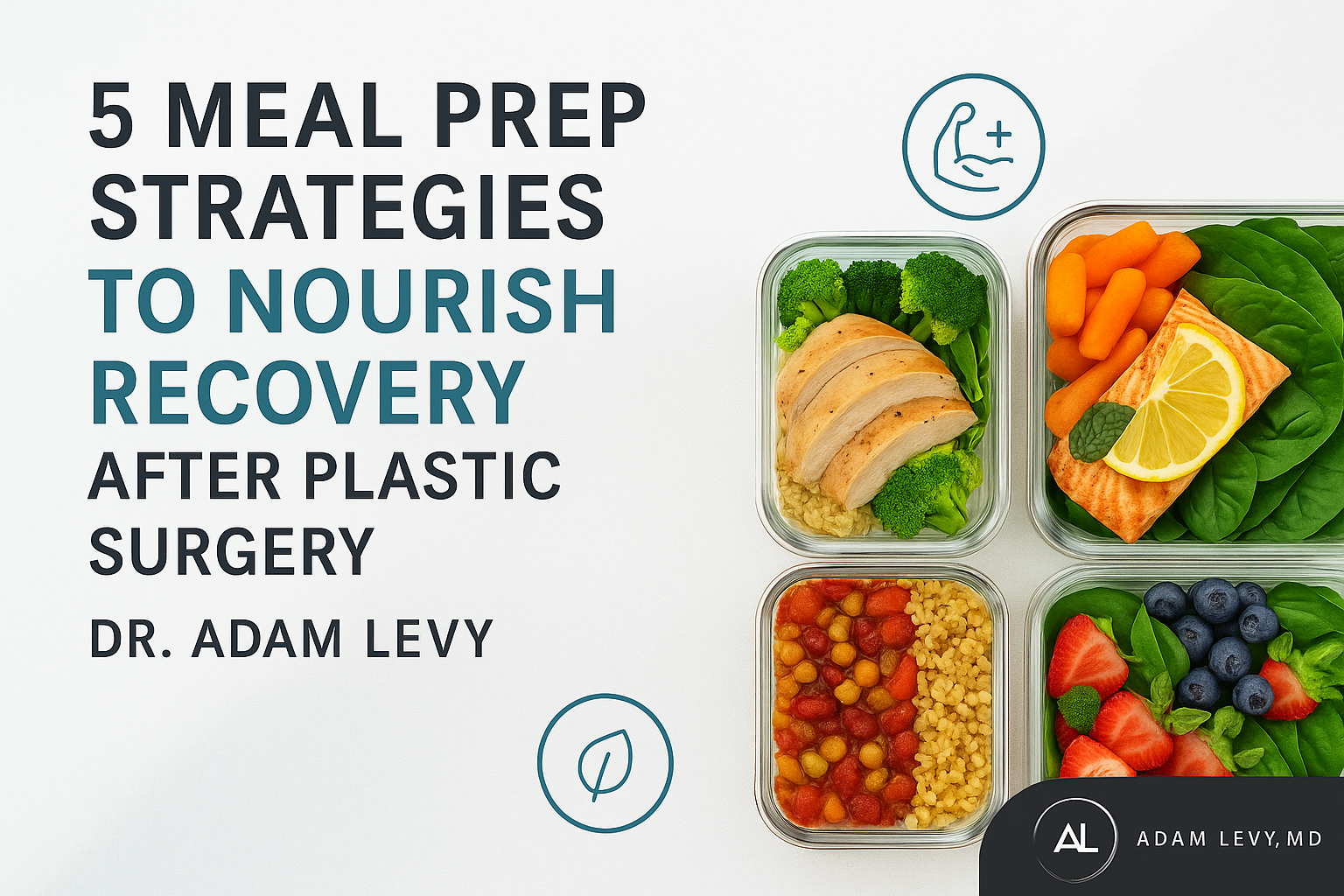5 Meal Prep Strategies to Nourish Recovery After Plastic Surgery
🥗 5 Meal Prep Strategies to Nourish Recovery After Plastic Surgery
Planning ahead for your post-surgery recovery? One of the best things you can do — aside from resting — is fuel your body with healing foods. After procedures like a tummy tuck, facelift, or DIEP flap reconstruction, your body needs the right nutrition to repair tissue, reduce inflammation, and speed healing.
In this guide, I’ll share 5 meal prep strategies that can make your recovery smoother, easier, and more nourishing.
🥦 1. Prep Before Surgery to Reduce Stress After
You’ll feel your best if you plan and prep meals before surgery — when you’re mobile and focused. Having ready-to-go, healthy meals means:
Less pressure on caregivers
Reduced temptation for junk food
Faster access to nutrient-dense meals when you need them most
Aim to prep 3–5 days’ worth of meals before your procedure. Use freezer-safe containers and label them clearly.
🥩 2. Focus on Nutrient-Dense Staples
Your body’s recovery depends on protein, vitamins, and minerals. Prep meals that include:
Lean proteins (chicken, salmon, eggs, Greek yogurt)
Dark leafy greens (spinach, kale)
Colorful vegetables (sweet potatoes, bell peppers, broccoli)
Whole grains (quinoa, brown rice)
Anti-inflammatory ingredients like turmeric, garlic, and ginger
Need ideas? Start with these 10 nutrient-packed foods for plastic surgery recovery.
🥣 3. Make Soft, Easy-to-Digest Meals for Days 1–2
For the first 48 hours after surgery, you may feel nauseated, tired, or have limited appetite. Prep gentle, soft-texture meals like:
Bone broth or light chicken soup
Protein smoothies with Greek yogurt & fruit
Scrambled eggs with avocado
Applesauce, mashed sweet potato, or banana
These options reduce digestive effort and still provide key nutrients.
🍛 4. Batch-Cook & Freeze for Later Recovery Days
Once you’ve passed the initial recovery phase, it’s important to keep nourishing your body. Cook and freeze meals in batches like:
Quinoa bowls with roasted chicken and broccoli
Turkey chili with beans and tomatoes
Wild salmon with turmeric-spiced sweet potatoes
Tip: Use turmeric, ginger, garlic, olive oil, and lemon — natural anti-inflammatory flavor boosters.
💧 5. Don’t Forget Hydration & Healthy Snacks
Hydration is crucial — especially if you’re recovering from surgery involving drains (like a tummy tuck or DIEP flap). Keep water bottles nearby and try:
Cucumber or lemon-infused water
Bone broth in a thermos
Coconut water for electrolytes
Smart snacks to prep:
Greek yogurt cups
Hard-boiled eggs
Nut butter + apple slices
Protein bars (low sugar)
Bonus: If you’re tracking post-op drain output, make sure you’re getting enough fluids. DrainTrack can help you monitor drainage and stay ahead of recovery needs.
🧠 Final Tips
Use meal prep containers with 2–3 compartments for protein + veggies + carbs
Label containers by day or meal type (“soft,” “high-protein,” “light”)
Schedule your post-op grocery order ahead of time
💬 Frequently Asked Questions
Q: What’s the best thing to eat right after plastic surgery?
A: Soft, protein-rich foods like soup, smoothies, and scrambled eggs. Avoid salty or processed foods.
Q: Can I eat frozen meals from the store?
A: You can — but avoid high-sodium or ultra-processed options. Homemade is better for healing.
Q: When should I start eating normally again?
A: Within 2–5 days depending on your procedure. Your surgeon will give specific instructions.


